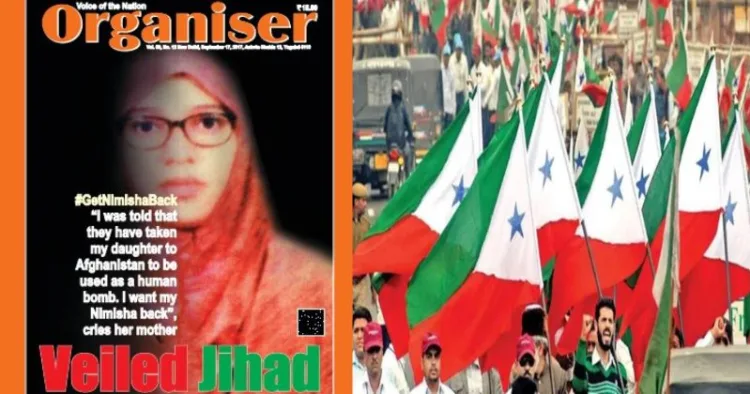In a significant victory for Organiser Weekly, the Kerala High Court on November 26, quashed criminal defamation proceedings initiated against Bharat Prakashan (Delhi) Ltd. for publishing an article on the banned terrorist organisation ‘Popular Front of India’ (PFI) titled – The Usual Suspect, in the issue dated September 17, 2017.

In this report, Organiser Weekly highlighted the anti-Bharat activities of the banned organisation and described it as ‘the new avatar of the banned SIMI’, pointing out its nefarious presence in Love Jihad. Subsequently, the PFI filed a case against Bharat Prakashan (Delhi) Ltd. and the Organiser editorial team. The PFI General Secretary registered the case under Sections 499 and 500 of the IPC.

PFI filed case against Organiser

What court said?
However, on November 26, in Case Number: CRL.MC NO. 1850 OF 2019, Bharat Prakashan (Delhi) Ltd. v. CP Mohammed Basheer, Justice PV Kunhikrishnan of the Kerala High Court observed:
“First of all, it is a fact that, the Popular Front of India is a banned organisation in the country. The Ministry of Home Affairs, as per S.O. 4559(E) dated 27.09.2022, declared that the Central Government, having regard to the circumstances mentioned in the above order, in exercise of the powers conferred by sub-section 1 of Section 3 of the Unlawful Activities (Prevention) Act, 1967, declared the Popular Front of India and its associates or affiliates or fronts including Rehab India Foundation, Campus Front of India, All India Imams Council, National Confederation of Human Rights Organisation, National Women’s Front, Junior Front, Empower India Foundation and Rehab Foundation, Kerala as an “unlawful association”. Therefore, admittedly, the Popular Front of India is a banned association in India. Hence it cannot be said that there is defamation to a banned association because of certain publication by the petitioners.”
The court further stated, “The Popular Front of India may come within the definition of ‘person’ as defined in Section 499 of the Indian Penal Code. But when ‘the Popular Front of India’ itself is banned in India by the Central Government, such a banned association will not come within the purview of Section 499 of the Indian Penal Code, because, a banned association has no legal entity. For that simple reason, I am of the considered opinion that the prosecution against the petitioners is to be quashed.”
The court further added, “This Court perused the article published by the petitioners, which according to the 1st respondent is defamatory. These are only some of the allegations against the Popular Front of India which is available in the public domain at that stage. Subsequently, the Popular Front of India itself was banned by the Central Government for the reasons mentioned in the order of banning. In such circumstances, according to me, a complaint of defamation against the petitioners will not stand from a banned organisation”
Ban on PFI
Notably, On September 28, 2022, the Indian government declared the Popular Front of India (PFI) an “unlawful association” and banned it for five years under the Unlawful Activities (Prevention) Act(UAPA) 1967. The government cited PFI’s connections with terror organisations like the Students’ Islamic Movement of India (SIMI), the Jamat-ul-Mujahideen Bangladesh (JMB), and the Islamic State (IS) of Iraq and Syria as “prejudicial to the integrity, sovereignty, and security of the country.” Furthermore, the PFI’s involvement in organising terror camps and encouraging young people to engage in terrorist activity led to the ban under anti-terror laws.
Following the ban, the PFI’s eight associate organisations, namely the Rehab India Foundation, the Campus Front of India, the All India Imams Council, the National Confederation of Human Rights Organisation, the National Women’s Front, the Junior Front, the Empower India Foundation, and the Rehab Foundation, Kerala, were also banned.
How PFI was involved in anti-Bharat activity
The Popular Front of India (PFI) gained major support from many terrorist organisations declared illegal between 2001 and 2010, including SIMI, LeT, and IM. These groups played pivotal roles in strengthening PFI’s presence in various regions, illustrating the depth of their collaboration. The PFI strategically utilised violence to attract funding from sources in the Gulf, mirroring tactics employed by Communist groups in Kerala and West Bengal. This included a template of ‘crowd war tactics,’ which involved children at the forefront, followed by women, and then armed cadres.


















Comments